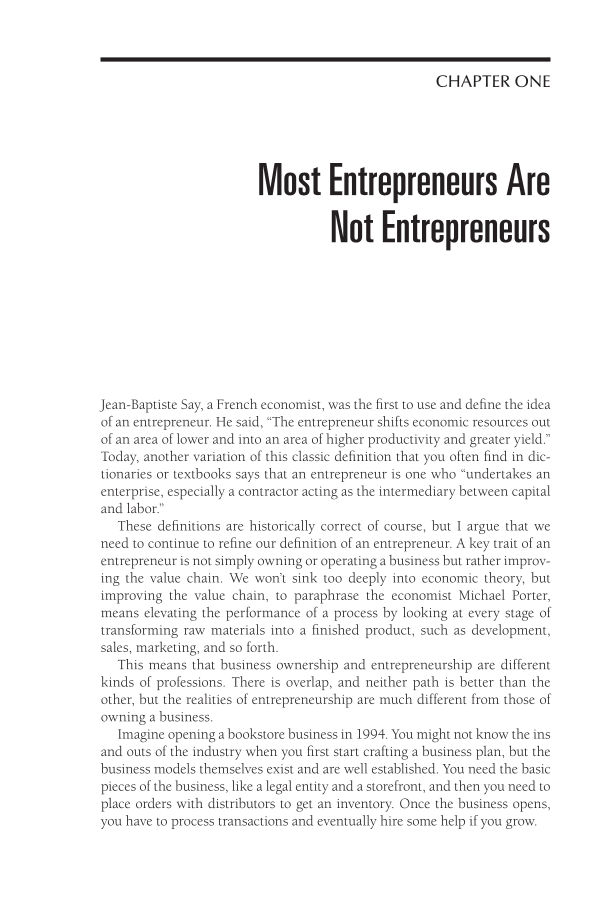CHAPTER ONE Most Entrepreneurs Are Not Entrepreneurs Jean-Baptiste Say, a French economist, was the first to use and define the idea of an entrepreneur. He said, “The entrepreneur shifts economic resources out of an area of lower and into an area of higher productivity and greater yield.” Today, another variation of this classic definition that you often find in dic- tionaries or textbooks says that an entrepreneur is one who “undertakes an enterprise, especially a contractor acting as the intermediary between capital and labor.” These definitions are historically correct of course, but I argue that we need to continue to refine our definition of an entrepreneur. A key trait of an entrepreneur is not simply owning or operating a business but rather improv- ing the value chain. We won’t sink too deeply into economic theory, but improving the value chain, to paraphrase the economist Michael Porter, means elevating the performance of a process by looking at every stage of transforming raw materials into a finished product, such as development, sales, marketing, and so forth. This means that business ownership and entrepreneurship are different kinds of professions. There is overlap, and neither path is better than the other, but the realities of entrepreneurship are much different from those of owning a business. Imagine opening a bookstore business in 1994. You might not know the ins and outs of the industry when you first start crafting a business plan, but the business models themselves exist and are well established. You need the basic pieces of the business, like a legal entity and a storefront, and then you need to place orders with distributors to get an inventory. Once the business opens, you have to process transactions and eventually hire some help if you grow.
Document Details My Account Print multiple pages
Print
You have printed 0 times in the last 24 hours.
Your print count will reset on at .
You may print 0 more time(s) before then.
You may print a maximum of 0 pages at a time.


























































































































































